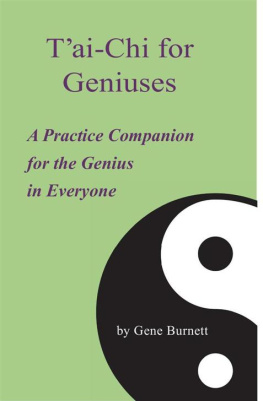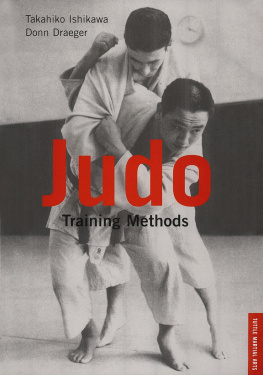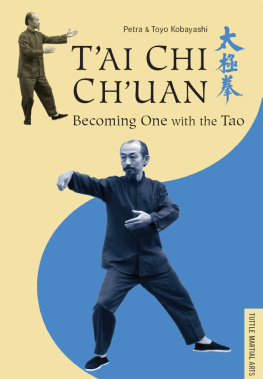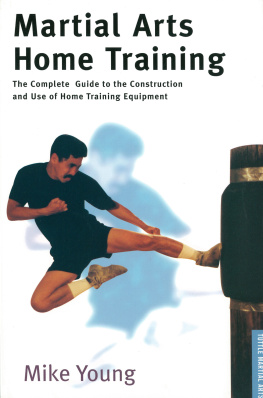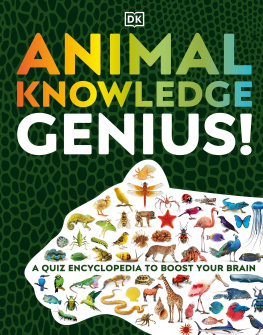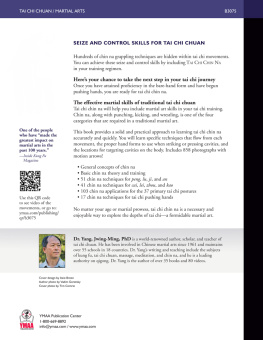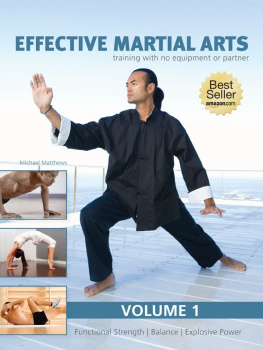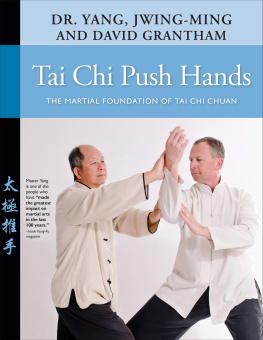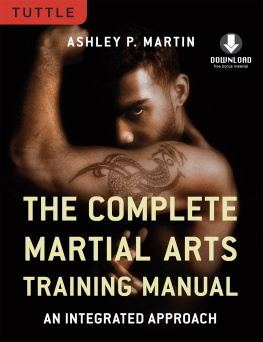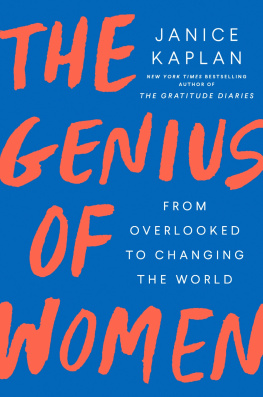Tai-Chi
for
Geniuses
A Practice Companion
for the Genius
in Everyone
Gene Burnett
iUniverse, Inc.
New York Bloomington
Tai-Chi for Geniuses
A Practice Companion for the Genius in Everyone
Copyright 2009 Gene Burnett. All rights reserved.
All rights reserved. No part of this book may be used or reproduced by
any means, graphic, electronic, or mechanical, including photocopying,
recording, taping or by any information storage retrieval system
without the written permission of the publisher except in the case
of brief quotations embodied in critical articles and reviews.
Before beginning to study Tai-Chi or any other movement art its important
to remember that not all movements are suitable for all people. Even though
the basic movements of Tai-Chi are done slowly and gently, they are not
risk free. Please consult your physician before beginning this or any other
exercise program. Also, this book is meant to be a companion to study with a
competent teacher. It is not meant to be a substitute for personal instruction.
iUniverse
1663 Liberty Drive
Bloomington, IN 47403
www.iuniverse.com
1-800-Authors (1-800-288-4677)
Because of the dynamic nature of the Internet, any Web addresses or links
contained in this book may have changed since publication and may no longer be
valid. The views expressed in this work are solely those of the author and do not
necessarily reflect the views of the publisher, and the publisher hereby disclaims
any responsibility for them.
978-1-4401-1191-4 (sc)
978-1-4401-1192-1 (ebk)
iUniverse rev. date: 12/19/2008
CONTENTS
This book is dedicated to my Tai-Chi family:
Grandmaster Tchoung Ta-Tchen (Grandfather), Andrew Dale (Father), Harvey Kurland (Uncle), David Harris (Uncle), Joel Hartshorne (Brother), Derryl Willis (Brother) and
Paul Mulholland (Brother).
Special thanks to:
My wife and best friend Samarra Burnett whose passionate commitment to honesty, kindness and allowing her life to unfold without using force amazes, vexes, and delights me daily.
My parents Allison Lee Burnett and Marie Miranti Burnett, my brother Allison James Burnett, and my sister Carla Burnett for being my first teachers and friends.
Andy Dale for being such a generous and patient teacher.
Joel Hartshorne for years and years of practice sessions and friendship.
John Michael Greer for his encouragement in writing this book.
Tobias Ryan for taking Tai-Chi to heart and for many fruitful talks and arguments.
Nathan Crow for helping me sharpen and clarify just about everything.
Ken Bendat and Chad Moyer for Chinese Medicine and arguing with me about what chi is.
Nick Crane for not giving up and knowing something about just about everything.
Victor Cummings for his warmth and support in all my creative ventures.
Jonathan Gimbel for all those walks around the lake and for always getting to the truth.
Paul Mulholland for his emotional intelligence and commitment to its expression.
Monty Walters for being out there without forgetting to be in here.
John Javna for being ruthlessly honest and always himself.
Datta Groover for his endlessly resourceful help on and off the web.
Haila Williams for her support and love of beauty.
John Soares for editing help and encouragement.
Gary Kliewer of Confluence Book Services for his friendship and book design assistance.
And all my teachers, students, dance partners, and friends for all the things Ive learned working and playing with you that helped make this book possible.
Getting Started:
Tai-Chi and the Genius Inside You
T here are lots of how to books for dummies and complete idiots. This is not one of those books. This book is for the genius in you, the part of you that knows when something is right and when it's not, the part of you that knows who you can trust and who you can't, the part of you that knows vastly more than your conscious intellect. We all have this intuitive intelligence within us, but the culture we live in, like all cultures and subcultures, is more interested in maintaining itself than it is in helping you listen to and trust your own genius. No culture, subculture or family anywhere has ever been about that. All cultures curtail freedom in order to perpetuate themselves and hopefully contribute vital stability, pleasure and cohesiveness to the lives of the people within them. Unfortunately in the process of making life safer, our culture often leaves us with little or no connection to our own intuitive sense of rightness. In our confusion we tend to trust authorities to tell us what to do, since they know better. Sometimes we are admonished to listen to and follow authorities so that we dont have to reinvent the wheel, that is, spend a lot of time and energy rediscovering something thats already been found out. When it comes to something like building a bridge or doing surgery I completely agree. You are not going to explore your way into these kinds of activities very easily on your own, and relying on the years of research that went before you seems like a pretty smart thing to do. But with simpler, more basic human activities like standing, moving, breathing, and keeping your body from harm, I believe reinventing the wheel is much better than blindly trusting authorities to tell you what to do. Authorities can be helpful, but what you discover yourself, what you reinvent, will be much more alive and much more yours. Nature gave you a miraculous brain, an incredibly adaptable versatile intelligence that took billions of years to evolve. When that intelligence is fully alive in a person who feels safe to explore and learn, we call that person a genius.
This book is about learning to listen to and trust the genius inside you. It's about allowing your genius to function as a kind of inner compass. Your inner genius can help you set goals and directions, but it can also help you choose how to get where youre going and who to trust along the way. Learning to trust this inner genius is not a quick and easy process. It involves trial and error and the errors are sometimes painful. Sometimes what seems like your inner genius telling you to do something is actually not. When it is not, the results you get will feel wrong. When it is your inner genius youve been listening to, the results you get will feel right. This is an ongoing process that never ends, since life, you, and your inner genius are in constant motion. What feels right today may not feel right tomorrow. Listening to your inner genius means maintaining an open, inquiring, and unfinished mind and body.
This book is also about Tai-Chi. T'ai-Chi is a Chinese word which has been translated as Supreme Ultimate. T'ai-Chi Ch'uan, the art that most people call T'ai-Chi, has been translated as Supreme Ultimate Fist or Supreme Ultimate Boxing. When you hear Supreme Ultimate Boxing you might think that this means The Best Boxing. The actual meaning, as I see it, is closer to The Martial Art Based on the Underlying Supreme Ultimate Principle of the Unforced Balance of Yin and Yang Energies. Or more simply: Balance Boxing.
Tai-Chi then, is a Chinese martial art based on the principle of harmonizing Yin (feminine, soft energy) and Yang (masculine, hard energy). It is considered a soft style martial art. What distinguishes so called soft styles of martial arts from so called hard styles is that in the soft styles you rely primarily on relaxation, efficiency, and technique rather than primarily on strength, speed and power. You use combinations of smaller muscles that are correctly coordinated rather that forcing things with the bigger muscles. You also rely on body position and efficient use of energy. These skills take years to learn and integrate into your body. If you want to be able to use them in serious combat situations, it takes even longer. This is one of the reasons why we train and move slowly and carefully from the inside out. We are aiming for a level of grace and total body coordination that is just not possible to rush through.
Next page
